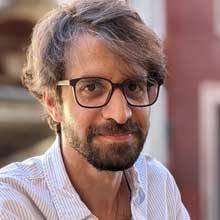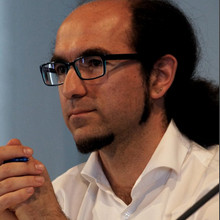MC-EuCon
Margaret Cavendish (1623-1673) in the history of European ideas of consciousness
Project
What is MC-EuCon?
The MC-EuCon project investigates the philosophy of Margaret Cavendish (1623-1673), with the aim of providing a detailed interpretation of her theory of consciousness and assessing her contribution to past and present debates in philosophy of mind.
Questions about consciousness, its origin and presence in nature, which dominate present-day debates in philosophy of mind, arose during the 17th century. Against Descartes’s mind-body dualism and his attribution of mental life to humans alone, Cavendish argued for a wholly material, yet wholly thinking universe. By providing one of the earliest and most original responses to Descartes’s theories, Cavendish played a seminal role in the European history of the concept of consciousness. Her work offers a rich opportunity for developing our understanding of how problems about consciousness evolved and were addressed in Europe in the early modern period.
However, since no specific word for ‘consciousness’ was available in the philosophical vocabulary of her day, extrapolating her views on the topic is problematic. The MC-EuCon project focuses on texts of Cavendish and her interlocutors, in order to reconstruct her vocabulary related to consciousness and clarify her theory. It then assesses the significance of her ideas for past and present-day debates in philosophy of mind.
Research
What does MC-EuCon deal with?
The overall goal is to gain a coherent and complete comprehension of Cavendish’s theory as exposed in her writings, and assess the way in which she accounted for the presence of consciousness in both human and non-human beings.
Cavendish’s ideas on the nature of conscious thought are embedded in metaphysical and cosmological considerations. The core research activities consist, therefore, in close-reading analyses and interpretations of 17th-century texts by Cavendish and her intellectual network (with particular regard to members of the so-called “Cavendish Circle”, named after her husband William Cavendish, and gathering thinkers such as Hobbes, Descartes, and Digby), in order to discern and understand her terminology and ideas about consciousness in their historical contexts. These texts deal with metaphysics, ethics, natural philosophy, and observations on early modern scientific methods. Comparative analyses with other monist and panpsychist thinkers contemporary to Cavendish (most notably Spinoza) will also be performed, in order to highlight and assess the original traits of Cavendish’s theory. The research is assisted by the use of secondary academic literature in the fields of history of early modern philosophy and present-day philosophy of mind, in order to increase knowledge of the intellectual and historical contexts in which Cavendish’s theory developed, and to provide present-day notions regarding consciousness and its functions that can work as heuristic interpretive devices.
Outreach
Publications
Edited journal special issue
- Marrama, Oberto, and Pietro Daniel Omodeo (eds.). 2025. “Hobbes and the Cavendish Circle: Intellectual Networks in the Seventeenth Century”. Special issue, “Hobbes Studies” 38 (1).
Articles in peer-reviewed journals
- Marrama, Oberto. Forthcoming (exp. 2025). “‘A Thing Like Us’: Human Minds and Deceitful Behaviour in Spinoza”. “Journal of Interdisciplinary History of Ideas”.
- Marrama, Oberto, and Pietro Daniel Omodeo. 2025. “Hobbes and the Cavendish Circle: Intellectual Networks in the Seventeenth Century: Introduction”, “Hobbes Studies” 38 (1): 1-11.
- Marrama, Oberto. 2024. “‘The Habit of Virtue’: Spinoza on Reason and Memory”. “Journal of Early Modern Studies” 13 (2): 63-84.
- Marrama, Oberto. 2023. “Mapping the Boundaries of Conscious Life in Margaret Cavendish’s Philosophy”. “Revue Philosophique de Louvain” 120 (3): 407-434.
Chapters in peer-reviewed edited volumes
- Lähteenmäki, Vili, Oberto Marrama, and Jani Sinokki. Forthcoming (2025). “Introduction”. In “Cartesianism and Philosophy of Mind”, edited by Vili Lähteenmäki, Oberto Marrama, and Jani Sinokki. New York/Abingdon, Oxon: Routledge.
Events
Workshops
- 30/04/2024 - Workshop: “The Cavendish Circle: Philosophical Networks in the 17th Century”.
Department of Philosophy and Cultural Heritage of Ca' Foscari University of Venice, Malcanton Marcorà (Aula Valent), Dorsoduro 3484/D, Venice (Italy).
Papers presented in the workshop investigate ways in which philosophical and scientific ideas were discussed and circulated through the mediation and within the context of the so-called “Cavendish Circle” during the 1640s. By bringing together five expert contributors, the event aims to shed light on a vibrant intellectual context, which played a crucial role in advancing and spreading the ideas of pivotal thinkers in the history of European philosophy, including Thomas Hobbes, René Descartes, Margaret Cavendish, Pierre Gassendi, and Walter Charleton.
Invited speakers: Julia Borcherding (University of Cambridge), Stephen Clucas (Birkbeck, University of London), Karolina Hübner (Cornell University), Antonia LoLordo (University of Virginia), Timothy Raylor (Carleton College).
Organizers: Oberto Marrama and Pietro Daniel Omodeo.
Public lectures
- 26/10/2024 - “‘Ogni cosa è animata’: 10 anni di ricerca all'estero su Spinoza (1632-1677), Cavendish (1623-1673) e la coscienza di tutte le cose”.
Public lecture at the LSS (State Scientific High School) Paolo Lioy, Vicenza, Italy ("Vent’anni dopo… al Lioy", lectures to celebrate the school's centennial anniversary since its founding).
Invited talks
- 25/05/2025 - “Networks of Ideas: Spinoza’s Theory of Memory”, Kone Foundation, Helsinki, Finland ("Metaphysics of Cognition and Self in Early Modern Philosophy").
- 10/07/2024 - “Aspects of Consciousness in Cavendish’s Metaphysics of Mind”, Dalhousie University, Canada ("21st Atlantic Canada Seminar in Early Modern Philosophy").
- 04/06/2024 - “The Hobbesian Sort of Panpsychism” (with Alexandra Chadwick), Université Paris 1 Panthéon-Sorbonne, France ("Journée d’étude internationale sur les pensées de Descartes et Hobbes: Influences et réceptions").
- 30/05/2024 - “Spinoza on Sympathy and Humanity”, ZRC SAZU Institute of Philosophy, Ljubljana, Slovenia ("Early Modern Philosophy: Metaphysics, Physics, Method(s)").
- 23/05/2024 - “The Hobbesian Sort of Panpsychism” (with Alexandra Chadwick), University of Jyväskylä, Finland ("JYU Philosophy Research Seminar").
- 08/05/2024 - “Monism and Panpsychism in the 17th Century: Cavendish, Hobbes, and Spinoza”, University of Oulu, Finland ("Consciousness and Cognition in Early Modern Philosophy").
- 25/01/2024 - “Sympathy and Humanity in Spinoza”, Roma Tre University, Italy ("Ethics of Sympathy in the Seventeenth and Eighteenth Centuries").
Departmental seminars at Ca’ Foscari University
- 20/09/2024 - “The Hobbesian Sort of Panpsychism” (with Alexandra Chadwick), Ca’ Foscari University of Venice, Italy ("Early Modern Intellectual History in Venice" meeting).
- 24/11/2023 - “Mapping the boundaries of conscious life in Margaret Cavendish’s philosophy”, Ca’ Foscari University of Venice, Italy ("Early Modern Intellectual History in Venice" meeting).
Team
Oberto Marrama
Marie Skłodowska-Curie Postdoctoral Fellow
Pietro Daniel Omodeo
Associate Professor, Supervisor





